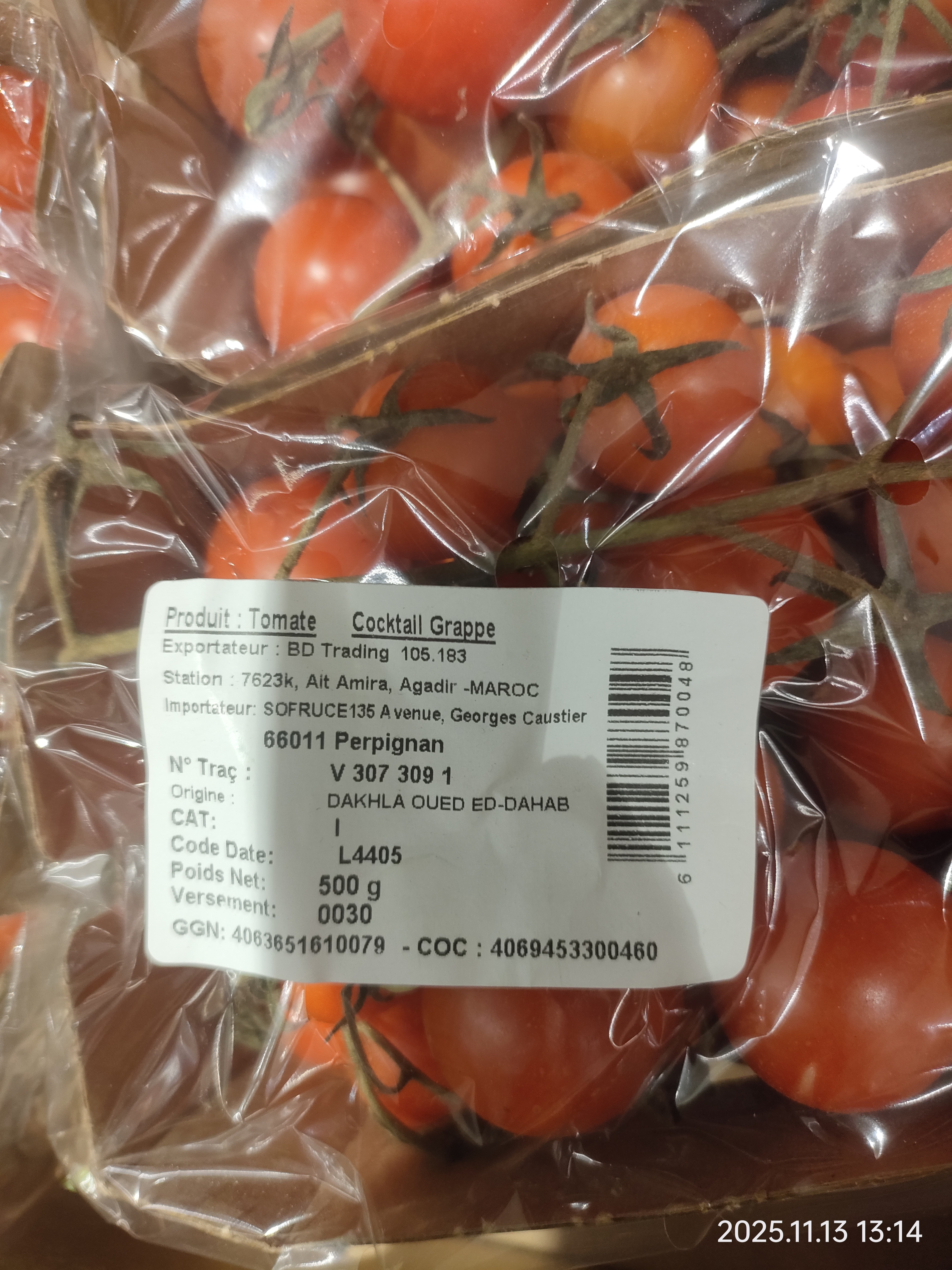
“The agreement has not been suspended and I am convinced that it will never be suspended".
This statement was made by Ahmed Ouayach on 28 April this year [or download]. Ahmed Ouayach is the President of the Moroccan Confederation for Agriculture and Rural Development (COMADER).
This position suggests that the Moroccan confederation of agriculture, which claims to also represent the agro-industry in occupied Western Sahara, has failed to lift a finger to honour the 10 December 2015 judgment of the Court of Justice of the EU (CJEU), annulling the application of the EU trade protocol with Morocco in Western Sahara.
The position of the Moroccan agri-confederation echoes statements from Sweden and the Netherlands in recent months, which say that there is no way to ascertain whether EU member States are today still importing Western Sahara products under the deal with Morocco. In other words, EU member states who would normally want to honour the judgment say they are technically not able to. In fact, if the association claiming to represent the exporters from Western Sahara makes no difference before or after the CJEU decided to annul the trade, it would be logic that the importers struggle to honour its obligations.
Both Sweden and the Netherlands have been clear that the EU trade with Morocco cannot include goods from Western Sahara.
Western Sahara Resource Watch on 23 June 2016 sent a letter to COMADER asking for clarifications about Mr Ouayach's comments on the Court's decision.
Now the complicated part:
That same COMADER, which has a very particular reading of the Court decision, is soon going to intervene in the Court to argue against the decision of the annulment of the Western Sahara trade – which they claim has never taken place. 10 June, the Court of Justice of the European Union announced that it had accepted COMADER as an intervening party in the appeal case against the Court's decision.
«Our relations with the founding members of Europe are very strong. We share a part of our history, our culture, our ideas and, it should be well understood, our interests. These members are our foremost clients and our foremost providers», the COMADER head argued back in April. He also said that “Reason will eventually take over, but the Moroccan people consider that endangering our territorial integrity is a red line that should not be crossed.”
A large part of the agro-industry in occupied Western Sahara is owned by French businessmen. The remaining part is in the hands of the Moroccan monarch or private Moroccan capital from Agadir. Fruits and vegetables that have been tiled under occupation, enter the EU single market through Perpignan, in France.
No Saharawis – the downtrodden original inhabitants of Western Sahara – own a plantation in their own country. During Morocco’s violent invasion in 1975, many Saharawis had to flee the very part of Western Sahara that is today home to the large scale and unsustainable agro-industry. Generations of Saharawis have grown up in refugee camps in Algeria, surviving on dwindling humanitarian aid that contains tragically little fresh produce.
The French-Moroccan ownership over the plantation industry in Western Sahara was documented in the 2012 WSRW report 'Label and Liability'.
There is very little information available about COMADER. The Confederation, which according to Mr Ouayach groups together around 20 federations, doesn’t have a webpage. The only available information are media statements of Mr Ouayach, the president of COMADER since its alleged establishment in 2006.
Ouayach is candid about COMADER’s connections to the Moroccan political apparatus. By his own admission, over 60% of Moroccan politicians are involved in an agricultural undertaking on the side and as such connected or supportive of COMADER.
COMADER does not seem to be present in Dakhla, the town in Western Sahara that has grown into an agricultural hotspot. It is not clear whether the Confederation has any of the Dakhla-based farms among its members.
European Commission rectifies incorrect lobby figures
As the European Commission excerted pressure on the European Parliament to approve a controversial EU trade agreement with Morocco earlier this year, they claimed the agri-industry in Western Sahara was practically inexistant. The Commission has now stated it is twice the size as they said in February.
King of Morocco to be biggest benefactor of EU trade agreement
A new EU trade agreement that is set to boost the personal fortune of King Mohamed VI of Morocco is facing opposition because it promotes the exploitation of disputed territory of the Western Sahara. Source: The Telegraph, 29 Jan 2012.
The Canary tomato sector hopes EU-Morocco Agri Agreement falls too
EU’s labelling chaos already hitting supermarkets
A packet of cherry tomatoes sold this week in a French supermarket illustrates the confusion triggered by the European Commission’s rushed attempt to adapt EU consumer and trade rules to Morocco’s claims over occupied Western Sahara.
